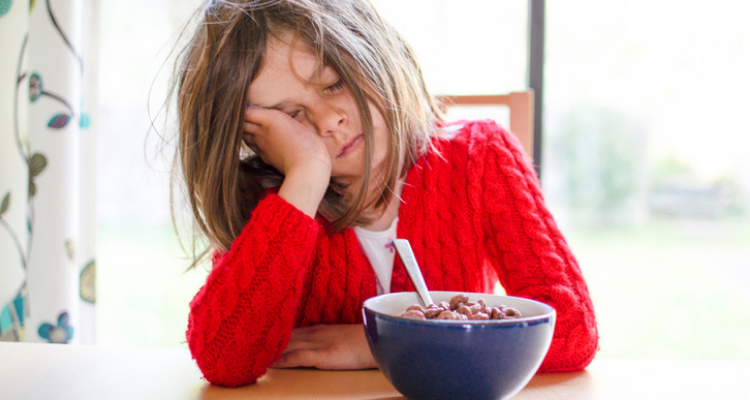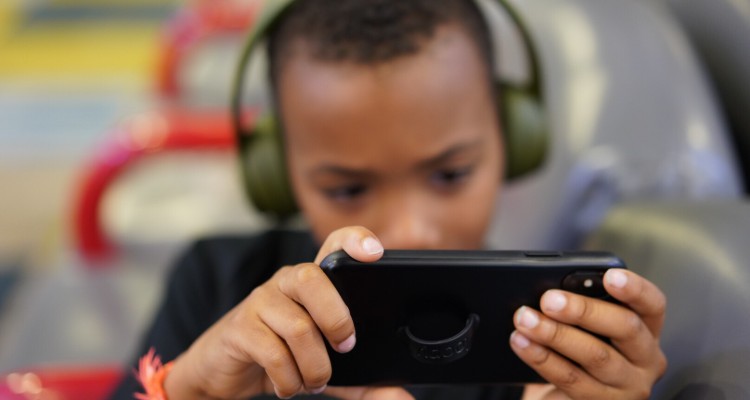.png?width=800&name=istock-12904997%20(1).png)
We’ve all woken up on the wrong side of the bed every now and then. But when bad moods begin to impact your child's quality of life, it may be time for an intervention.
This past year, stress has been at an all-time high, which profoundly impacts many factors contributing to mood, such as sleep, hormonal balance, relationships, sugar cravings, and weight gain. These factors directly affect the moods of adults and children, and can be addressed with diet, exercise, and supplementation.
How Our Moods Change
Mood shifts can range in severity, however even dramatic changes in mood shouldn’t control your overall productivity and contentment. While it’s normal to experience emotional ups and downs, drastic mood swings that impede daily routines could be a sign that an underlying cause needs to be assessed and addressed.

Daily stressors not only impact the mood and anxiousness in adults, but it can have that same impact in kids as well. This stress can negatively affect sleep quality, appetite, relationships, hormonal health, and weight management. As adults, you might be more aware of how stressors affect your quality of life, but signs of anxiousness in children aren’t always as obvious. Their stress and worry might manifest as removing themselves from social situations, decreased appetite, anger management issues, or increased impulsivity.
Unfortunately, the majority of studies that attempt to address an unbalanced mood focus on adults rather than kids. Tools and techniques like yoga classes and meditation sessions won’t necessarily help children in the same way they help adults, so curating a personalized plan that caters to the needs of kids is critical.
Addressing Mood Changes in Kids
Before diving into techniques that can help the shifting moods of children, it’s crucial to understand when professional help might be necessary. If you observe that anxiousness and major mood changes negatively impact your child, it’s best to speak with their integrative pediatrician for a personalized supplement and mental health plan.
Children feel the weight of stress in sometimes invisible ways, such as changes to their routine, anxiousness from parents or caregivers, and even worldwide stress that they hear about on the news or from adult conversations. With many children being in and out of in-person schooling the past two years, routine changes and isolation greatly impact mood.
Kids tend to do well with small doses of mindfulness and relaxation techniques, instead of sitting through a 30-minute guided meditation or going to a yoga class, for example. Remember, most kids are in class all day long, and won’t be interested in another class setting at the end of the day. Instead, they may respond well to 3-10 minutes of walking, stretching, sitting quietly, coloring, or deep breathing, depending on their age.
As a parent or caregiver, it’s crucial to find ways that encourage kids to participate in relaxing activities without pushing too hard. Imagination-guided techniques can work well for younger ages, especially before bedtime to prime the body for restful sleep.
Food also highly impacts mood, and certain foods are naturally healing and calming for the brain. Studies clearly show that refined sugar significantly affects children’s stress, emotions, and addictive behaviors.1 Artificial food dyes that are found in many processed and packaged foods might also have significant neurobehavioral consequences.2 Find ways to balance the foods your kids love with a vitamin-rich diet.
Best Supplements for mood
Diet, lifestyle changes, and mindfulness techniques aren’t a quick fix in kids or adults, and you might need some immediate support for mood changes. Certain herbs and supplements can be effective, but it’s important to continue building mindfulness and relaxation practices in your everyday life. In the meantime, you might also consider the following supplements:
vitamin D
The sunshine vitamin plays many vital roles, including supporting a stable mood and decreasing seasonal anxiousness.* Even in the summer months, vitamin D insufficiency can be problematic, especially if you live anywhere above the Mason-Dixon line.3
low-dose melatonin
Melatonin is the body’s sleep hormone, and when taken in low doses, can help with falling and staying asleep.* Sufficient and high-quality sleep is essential for managing stress, balancing hormones, and stabilizing mood.4
l-theanine
This amino acid found in green and black tea has been shown to ease anxiousness, mood fluctuations, and sleep issues.* It can also help to increase focus and concentration.*
cBD oil
CBD oil is becoming increasingly popular in kids and adults. Children typically need a lower dose than adults, who can take the oil twice per day.
magnesium
Magnesium plays hundreds of essential roles in the body, including stress support, sleep, and regular bowel movements.* Magnesium glycinate is a good choice for mood changes and stress management, and magnesium citrate works well for trouble going to the bathroom.*
final thoughts and considerations
Mood issues and anxiousness are increasingly common in children and adults, but a combination of dietary changes, physical activity, and supplementation can make a significant difference.
More than ever, it’s crucial to consider the impacts of electronics and social media, which can massively deteriorate the mental and emotional wellbeing of children and teens. It’s not an easy balance to strike, but it is vital to understand the implications of screen time and, ideally, limit its use.
Observe and stay mindful of mood changes in yourself and your children. Imbalances in our moods often reflect imbalances in our lifestyles, be it from work, diet, or sleep. Strive to find what techniques and tools bring peace of mind to you and your family, and be sure to supplement when vitamins are missing for your diet.

[1] Jacques, Angela, et al. “The Impact of Sugar Consumption on Stress Driven, Emotional and Addictive Behaviors.” Neuroscience & Biobehavioral Reviews, Pergamon, 21 May 2019, https://www.sciencedirect.com/science/article/pii/S0149763418308613.
[2] Akintunde, Marjannie. “Health Effects Assessment: Potential Neurobehavioral Effects of Synthetic Food Dyes in Children.” OFFICE OF ENVIRONMENTAL HEALTH HAZARD ASSESSMENT, Apr. 2021, https://oehha.ca.gov/media/downloads/risk-assessment/report/healthefftsassess041621.pdf.
[3] Penckofer, S., Kouba, J., Byrn, M., & Estwing Ferrans, C. (2010). Vitamin D and depression: where is all the sunshine?. Issues in mental health nursing, 31(6), 385–393. https://doi.org/10.3109/01612840903437657
[4] Kim, E. J., & Dimsdale, J. E. (2007). The effect of psychosocial stress on sleep: a review of polysomnographic evidence. Behavioral sleep medicine, 5(4), 256–278. https://doi.org/10.1080/15402000701557383
[5] Hidese, S., Ogawa, S., Ota, M., Ishida, I., Yasukawa, Z., Ozeki, M., & Kunugi, H. (2019). Effects of L-Theanine Administration on Stress-Related Symptoms and Cognitive Functions in Healthy Adults: A Randomized Controlled Trial. Nutrients, 11(10), 2362. https://doi.org/10.3390/nu11102362







.png?width=800&name=istock-12904997%20(1).png)










